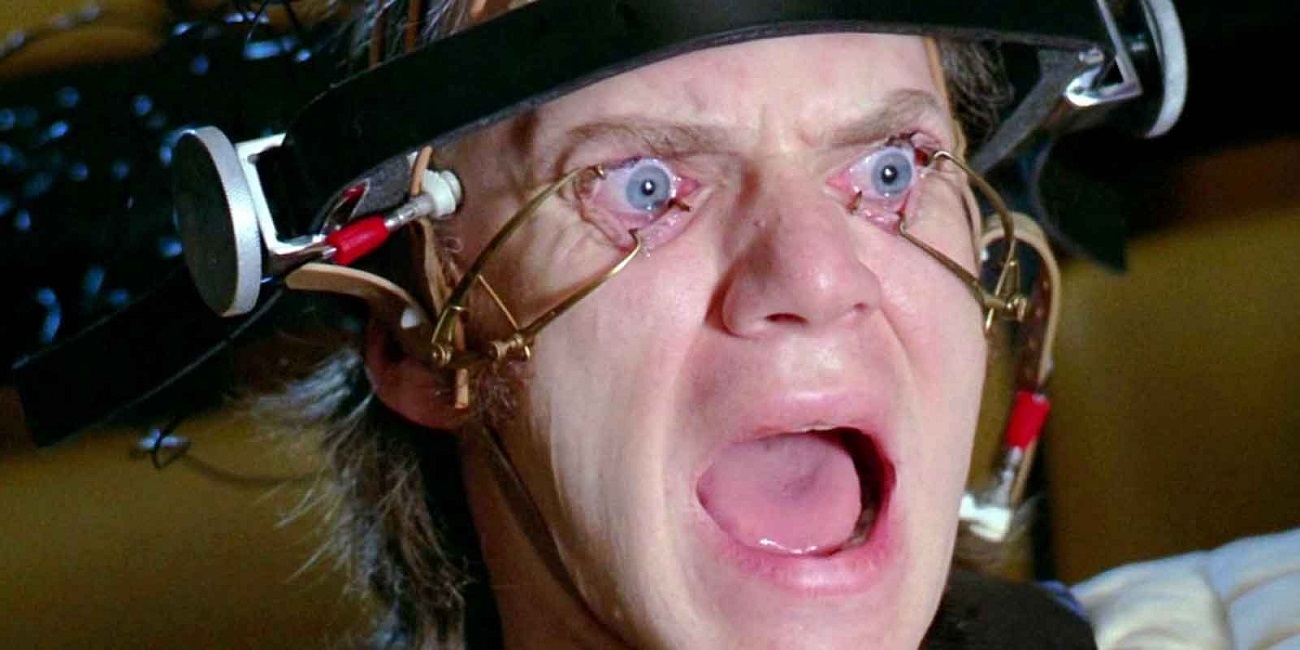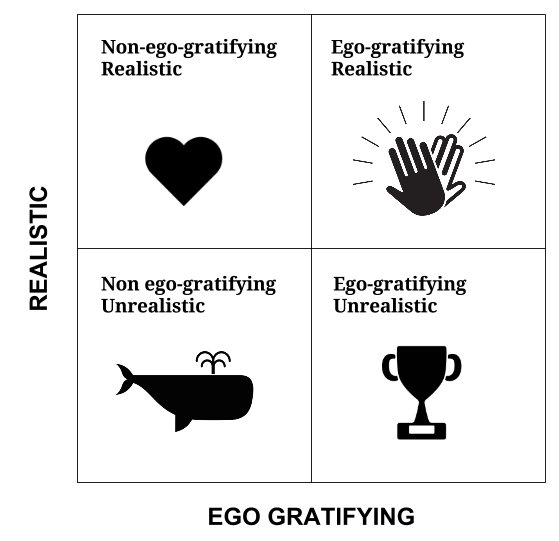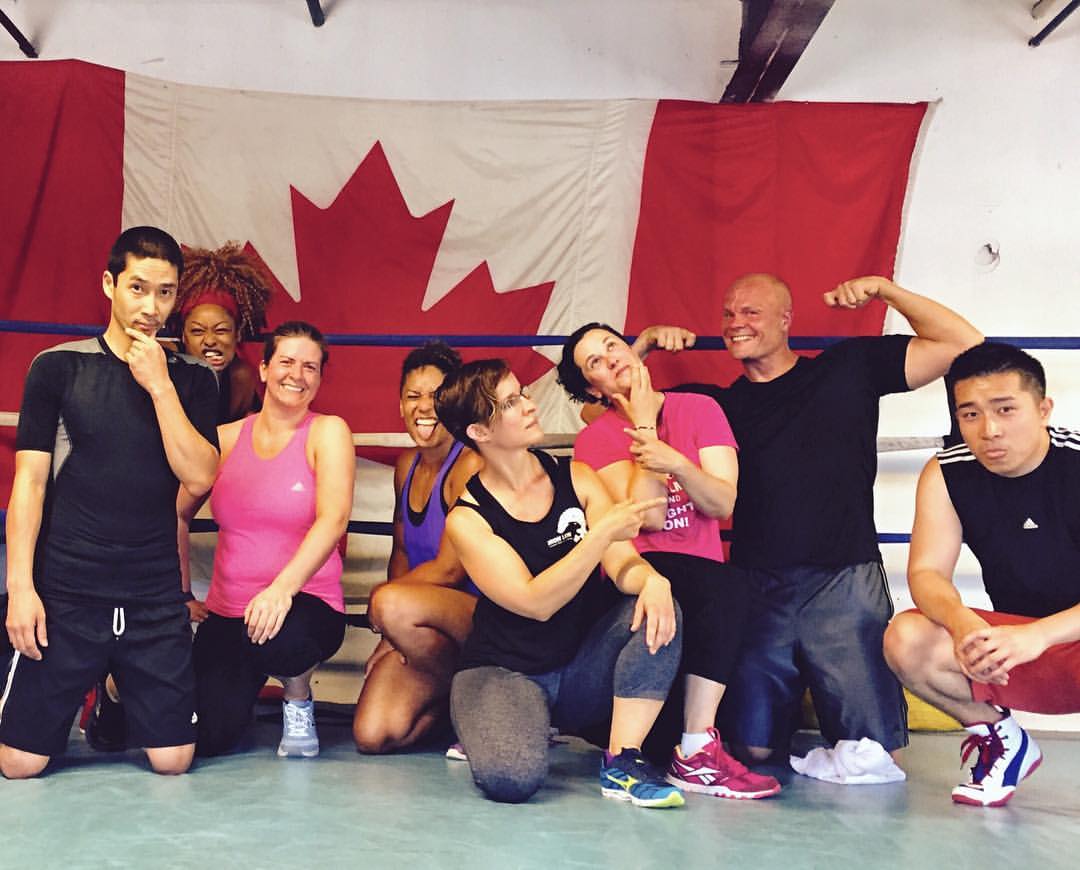Your Dreams Are Probably Stupid And Nobody Cares (That’s a Good Thing)
When I was a little kid, I had an idea about what the afterlife would involve.
I thought that after I died, I’d go to some place where a bunch of people, sort of like the chorus in a Greek tragedy, would show me film reels of my most embarrassing and uncool moments — picking my nose on the toilet, the time I farted in my boss’ face, that sort of thing.
It would be an epic circus of my humiliation, painstakingly documented by — who? minor deities? accountants of Hell? all the boys I ever had an awkward crush on? My immature theology was never quite clear on that.
The concept here is that some group of people is watching my every move, cataloguing it for posterity, and really really caring about it.
That sounds dumb, of course.
But isn’t that how we act when it comes to our own self-image?
I mean, isn’t that just basically Twitter, Instagram, and sharing all your workouts to Facebook?
Many of us at some point have operated with the core beliefs that:
- We are being closely observed.
- We are being closely observed by people who really, really care.
- The people who really, really care are judgmental as shit.
- We really, really care that they really, really care.
- So we have to act in ways that don’t let those people find any flaws. We must be perfect, lest this committee make us sit in a plastic folding chair with our eyes propped open, watching footage of that time we fucked up a Powerpoint and pooped our pants.

Many years ago, every time I worked out, I’d imagine a group of Stumptuous readers tsk-tsking.
“How can she have such a lousy squat?”
“Yes, her butt does look terrible in those pants… and in all pants ever invented.”
“What a poser.”
To be clear, I was working out alone.
By myself.
Invisible to the internet (yes, youngsters, there was a time when that was possible).
Nobody cared about my dreams.
Nobody cared whether I was a bodybuilder or a powerlifter, good at bench pressing, whether I was doing 3 sets of 5 or 5 sets of 3, what % of my 1RM I was using, or what I had for lunch.
For that matter, nobody cared about my cellulite angst, my squat numbers (or any other numbers), my weight, my butt’s shape / size / dimensions / aesthetic correctness, or any other trivial detail of my life.
Unless maybe I stepped on their foot on the subway or played my music too loud or cut them off in traffic, then other people briefly cared about how my trajectory might be interfering with theirs. Until they didn’t care again.
And yet I acted like they cared.
I acted and thought like everyone cared. Deeply.
I acted and thought like the rest of the world was arguing about my relative merits in the same way that old men around the world argue about football on smoky Sunday afternoons in the local café — passionately, with excruciating attention to errors, narratively needlepointing every fine detail of every stat and movement, gesticulating to indicate displeasure with fingers stabbing into the air.
I acted and thought like everyone gave a huge wet-burrito shit about all of it. All of me. All of my life.
My dreams. My worries. My thoughts.
Like my life was some Truman Show with cameras everywhere, even inside my brain.
But it’s not.
Now to be clear, I don’t mean I am alone and unloved.
I’m not hurtling isolated on this bald blue planet through space, silently weeping because there is no God and I can’t address my thank-you letters for a sunny day to any particular cosmic customer service representative.
Well, there is no God, and saying “thank you physics for the photons” doesn’t quite have the same thrill, but the fact that 7 billion people in the world aren’t breathlessly hitting “refresh” to find out what amazing thing I am doing doesn’t mean I live in some nihilist cave.
I’m surrounded by caring friends and family, by people who are interested in what I have to say, and do, and who I am, and my opinions on Manchego cheese (delicious), the Middle East (I can’t even) or Saul Bellow (literary genius).
It’s just that what they love, care about, and are interested in has nothing to do with all the stuff I thought was important.
Stuff like:
- How much weight I could lift (or not).
- How fast I could run (or waddle).
- How high I could jump (ha).
- My clothing size.
- My weight.
- My (in)visible abs.
- Whether I was doing X style workout or Y style.
- Whether I was eating X diet or Y diet or not at all.
- Whether I had been “bad” or “good”.
- Whether I had accomplished my desired number of reps and sets.
- Whether I had trained my core, or my posterior chain, or my stability, and exactly which method I used.
In fact, talking and worrying about all of the above, or related topics, makes you boring as shit. (Even to people who love you dearly and think the way you say “refrigerator” is delightful.)
In North America, we have a particular conceit. Which is:
We think our dreams are intrinsically valuable because they are our dreams.
If other people critique our dreams, or don’t care about our dreams, or don’t give us the right reaction when we grandly announce that we are following our dreams, we think they are hatin-ass morons who don’t care about our dreams.
Which they should! Because those are our dreams! All dreams are good and amazing and beautiful and worthy of slackjawed wondrous awe!
Stop and think about that for a moment.
Demanding unwavering allegiance to the correctness of dreams is what toddlers do.
Children are fundamentally egocentric. They have no context or comparison. Their small world is everything.
They will build an elaborate fort, announce that it is a spaceship, and scream you straight to hell if you tell them that it’s just a bunch of stupid pillows. You’d better buy in to that pillow ship, my friend.
Now, of course, in children, this is delightful.
I love watching kids create imaginary universes and live them. They encourage all of us cynically defeated adult bastards to believe in magic, if only for a few moments.

I also think imagination is a grand thing in general. I have a solid roster of mental adventure stories, starring myself as a pirate ninja sharpshooter acrobat popstar brain surgeon… or whatever.
But I don’t mix up imagination with reality.
Here’s what mixing up a child’s imagination with adult reality looks like.
- You worry about being “good”. Or “bad”.
- If you are “good”, it’s mostly for show. And doesn’t last. (Ta daaaa! Aren’t I behaving so much better than my little sister right now?)
- If you are “bad”, you make confessions on the internet. (OMG! Here’s what I ate! Soooo naughty! Teehee!)
- You think that magic is real — that there is a fairy-dusted mixture of sets and reps and macronutrients that unlocks the special door to Buffland.
- You demand that all of us look at you! Look at you! Oh my goodness! You lifted like a big girl! So strong!
- Oh dear! You did not lift as much weight as you wanted! So sad! You should punish yourself! You should have a tantrum!
- You confuse a given outcome with intrinsic value — an “A” on your spelling test, a gold star for being a good girl, a pat on the head for nice cursive writing, a high-five for your bathroom selfie.
If this isn’t you, and right now you’re chain-smoking Marlboros, leafing through your mutual fund reports, and chuckling in a growly Joan Crawford voice about how you just can’t be arsed to care about anything — congratulations. Enjoy your eccentric, very grown-up performance artist / sociopathic life.
The truth is:
We all have a little bit of small child in our brains.
Most of us want there to be magic.
Most of us want other people to love us and give us gold stars.
Most of us want to perform well.
Most of us want to play by the social rules and win the game.
Most of us don’t want to be ostracized, “get in trouble”, or be the group weirdo.
Most of us probably just need some juice, a cuddle, and a nap.
That’s normal.
We shouldn’t kill off our imaginations.
Again, pirate ninja sharpshooter acrobat popstar brain surgeon. 900 degree Tony Hawk spin!
Rad, right?
We should, however, learn to distinguish child-brain from adult-brain.
And this includes getting clear about what we’re doing, why we’re doing it, and where reality will impose natural and necessary limitations on us.
Think about it this way.
Imagine a 4-square grid.
One dimension is “ego-gratifying”. This runs from “completely self-centered” to “selfless”.
The second dimension is “realistic”. This runs from “could do it right now, now problem” to “you have to break the laws of space and time to make this happen”.

So you can have basically 4 types of things (with lots of stuff in between along a continuum, of course).
- Ego-gratifying and unrealistic. Basically you winning the world and having everyone notice. Awesome to imagine; don’t try executing any of these things seriously unless you want to become an obsessive, frustrated a-hole and have crying jags because you can’t free-dive a kilometre or walk around at 5% bodyfat all the time.
- Ego-gratifying and realistic. Everyone needs a little bit of this one in their lives. But not too much. Maybe 10-20% of your activities and effort should live here.
- Non-ego-gratifying and unrealistic. “World peace” and “Save all the whales” usually lives in here, unless “Save the whales” is really about you building some environmentalist empire, which is not that crazy if you see How To Change The World and realize that social movements involve a lot more dick-waving than you’d expect. Any genital waving bumps it back up to Category 1. Actually Category 3 is sneakily a lot like Category 1. If you’re a coach / trainer “just trying to help” by berating or pushing your clients in a noble martyred struggle against ignorance and sloth, you may think you’re #3 when you’re really #1.
- Non-ego-gratifying and realistic. This is where most of your life should be if you want to be happy, sane, and functional. Of course, we’re not looking for complete self-erasure here in Category 4, or some weird trippy Zen state where you serenely declare that all is all.
So what lives in Category 4 — non-ego-gratifying and realistic?
Empathy and compassion — helping other people in ways that they genuinely need and want, as well as having compassion for yourself.
Intrinsic mastery — learning skills that you truly enjoy and find useful, slowly and consistently.
Beginner’s mind — being open to new ideas, learning, expanding your worldview, and being coached.
Seeking, getting, and taking feedback — using data, information, and the evidence of experience to make decisions.
Scientific reasoning — looking at evidence, thinking critically, avoiding magical leaps of logic.
Showing up for practice — just showing up. Plain old showing up. Being there. Putting in the reps. Doing what needs to be done. Not looking for shortcuts; realizing that the practice is the point.
Enjoying things for their own sake — having fun, playing, simply being present.
OK, look, I don’t mean to be a downer.
Living in the non-ego-gratifying real world is awesome.
You’re truly free.
If you know your dreams are silly and that nobody cares about them, YOU get to decide whether you try to manifest them.
YOU get to decide whether they’re worth giving a shit about.
YOU get to decide whether they should live in your head (yay) or live outside (yay), and you know the difference between what’s inside and outside.
If you know your dreams are silly, but you really want to do something, you can choose to replace them with less-silly ones. Get coaching and feedback from people who have the objective expertise to help you, and don’t pout when they guide you gently towards reality.
If you know your dreams are silly and you do them anyway, recognizing that they are utterly ridiculous and probably won’t amount to shit, we call that fun. We call that a hobby. Or an eccentricity. Silly pointless goofing around is how disc golf, extreme ironing, and Roomba Pong got invented. None of it was needed, but it sure does spice up life.
Pointless antics often form the fountain of creativity, as long as you don’t take them too seriously. (Check out the Stupid Shit No-One Needs and Terrible Ideas Hackathon.)
If you know that nobody cares, we also call that fun. Because play can’t be too concerned with the audience.
Most of the time, nobody is judging you because they’re too caught up in their own paranoia about their own embarrassing afterlife blooper reel.
You’re completely liberated from the weight of other people’s imaginary shit-giving.
Even if they are judging you, it’s cursory. It’s a brief blip before they return to their own rumination. So, no harm no foul.
What would you do if there was no “measuring up”?
If there was no social scrutiny?
No Truman Show cameras?
What would you do if, figuratively, you were alone in all the very best ways — the delicious kind of aloneness where you can wear your jammies with the peanut butter stains, and sing I Will Survive in your loudest voice, and pee with the door open, and be like Tom Cruise in Risky Business? That kind of dance-like-nobody’s-watching feeling?
Take that feeling, and bring it along with you wherever you go.
You don’t have to be alone and drunk-dancing in your underwear to feel it. You can choose to feel it anywhere, any time.
You can nurture that feeling of fundamental freedom and fun in any environment, with any pursuit.
There’s no final exam. There are no judges. There are few rules besides reality requiring that you face it.
And if you fuck it up, well… if there’s no God, there’s probably also no film crew.

Me and some peeps from my boxing class, so concerned with serious appearances and impressing people.
